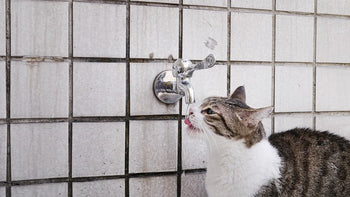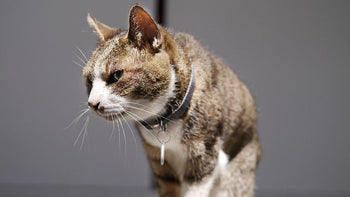If you're a pet owner who suffers from allergies, you may have wondered, Do air purifiers help with pet allergies? The short answer is yes—air purifiers can be an effective way to reduce the allergens that your furry friends leave behind, helping you breathe easier and enjoy the companionship of your pets without the sneezing, coughing, or itchy eyes.

Understanding Pet Allergies
Before diving into how air purifiers can help, it's important to understand what causes pet allergies. Contrary to popular belief, pet hair itself isn’t the primary trigger for allergies. Instead, the culprit is dander—tiny flakes of skin that pets shed, along with proteins found in their saliva, urine, and sweat glands. When pets groom themselves or shed fur, these allergens can be released into the air and easily settle on furniture, floors, and clothing.
For many people, exposure to these allergens triggers a range of symptoms, including:
- Sneezing
- Runny nose
- Coughing
- Itchy or watery eyes
- Skin rashes
- Asthma attacks (in severe cases)
How Do Air Purifiers Help with Pet Allergies?
Air purifiers work by filtering out particles from the air, including pet dander, dust, and other allergens. Using an air purifier specifically designed to handle allergens can significantly reduce the number of these particles floating in your home, making the air cleaner and safer to breathe.
Here’s how air purifiers can help with pet allergies:
1. Removal of Pet Dander: Air purifiers, especially those equipped with HEPA (High-Efficiency Particulate Air) filters, can capture tiny particles as small as 0.3 microns. Pet dander typically ranges from 2.5 to 10 microns in size, meaning HEPA filters are more than capable of trapping these allergens before they spread throughout your home.
2. Elimination of Airborne Pet Hair: While pet hair itself doesn’t trigger allergies, it often carries dander, dust, and pollen. An air purifier can reduce the amount of pet hair in the air, decreasing the likelihood of it spreading allergens.
3. Odor Reduction: Pet allergies aren’t just triggered by dander—pet odors can also aggravate sensitive noses. Air purifiers equipped with activated carbon filters can absorb and neutralize odors, helping keep your home smelling fresh.
4. Reduction of Other Allergens: Pets often bring outdoor allergens like pollen and dust mites into your home. Air purifiers can filter these additional allergens, providing broader allergy relief.
Types of Air Purifiers Best for Pet Allergies
Not all air purifiers are created equal when it comes to tackling pet allergens. Here’s a breakdown of the most effective types:
1. HEPA Air Purifiers: HEPA filters are widely regarded as the best for dealing with pet allergies. They can trap 99.97% of airborne particles that are 0.3 microns or larger, making them ideal for filtering out pet dander, dust, and even some bacteria. A HEPA filter is a must-have if you’re looking for serious allergy relief.
2. Example: The LEVOIT Core 400S is a popular HEPA air purifier in the U.S. market, known for its ability to trap pet dander and allergens in rooms up to 400 square feet.
3. Activated Carbon Filters: These filters are great for reducing pet odors. Activated carbon absorbs and neutralizes smells, which can be particularly useful if you’re dealing with litter boxes, pet accidents, or general pet odors in your home.
4. Example: The Austin Air HealthMate combines HEPA and activated carbon filtration, offering a dual approach to removing both pet dander and odors.
5. UV-C Light Air Purifiers: Some air purifiers use UV-C light to kill airborne bacteria and viruses. While this can’t remove pet dander, it can provide added protection by killing other particles that could worsen allergy symptoms.
6. Ionic Purifiers: Ionic air purifiers release charged ions into the air that attach to airborne particles, causing them to fall out of the air. While they can reduce allergens, they can also produce ozone, which may irritate the respiratory system in sensitive individuals. It’s generally better to stick with HEPA purifiers for pet allergies.

Tips for Maximizing the Effectiveness of an Air Purifier
To get the most out of your air purifier, here are some tips to consider:
1. Position It Correctly: Place the air purifier in the room where you and your pets spend the most time, such as the living room or bedroom. Keeping it in a high-traffic area maximizes the amount of air it can clean.
2. Keep Doors and Windows Closed: For best results, run your air purifier in a closed room to prevent allergens from re-entering. This allows the purifier to cycle and clean the air effectively.
3. Clean and Replace Filters Regularly: For HEPA and activated carbon filters to work optimally, make sure to clean or replace them according to the manufacturer’s instructions. Pet hair and dander can clog filters quickly, reducing their effectiveness.
4. Use Multiple Units for Large Homes: If you have a large house or multiple pets, consider investing in more than one air purifier. This ensures better coverage across different rooms and areas.
Additional Steps to Reduce Pet Allergies at Home
While air purifiers can significantly help with pet allergies, combining them with other strategies will provide even more relief:
1. Groom Pets Regularly: Regular brushing and bathing can reduce the amount of dander and pet hair in your home. Use grooming tools specifically designed for shedding and dander removal.
2. Wash Bedding and Furniture: Frequently wash pet bedding, blankets, and furniture covers. Vacuuming with a vacuum that includes a HEPA filter can also help reduce allergens trapped in carpets and upholstery.
3. Create Pet-Free Zones: Designate certain areas of your home, such as bedrooms, as pet-free zones to reduce the accumulation of allergens where you sleep.
4. Consider Hypoallergenic Pets: If you're considering getting a new pet, certain breeds like Poodles, Sphynx cats, and Bichon Frises are considered hypoallergenic because they shed less dander.
Conclusion
So, do air purifiers help with pet allergies? Absolutely. By removing pet dander, hair, and other allergens from the air, air purifiers can make a significant difference in reducing allergy symptoms and improving your indoor air quality.The Uah Pet Air Purifier is perfect for dog and cat families, featuring a wide GID inlet for handling floating pet hair. With a 99.9% UVC sterilization rate, it effectively removes allergens like Feld1 and Canf1 using its HEPA, cotton pre-filter, and carbon filtration system.
















